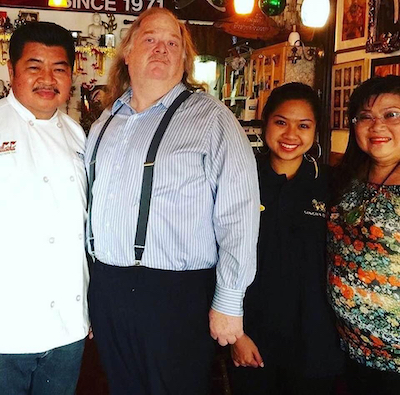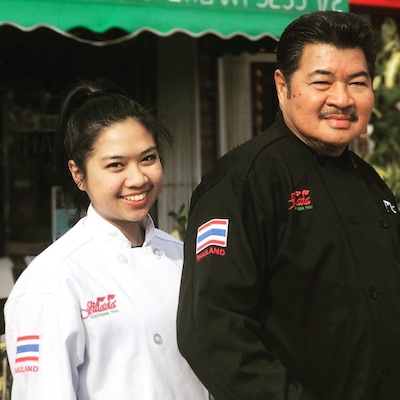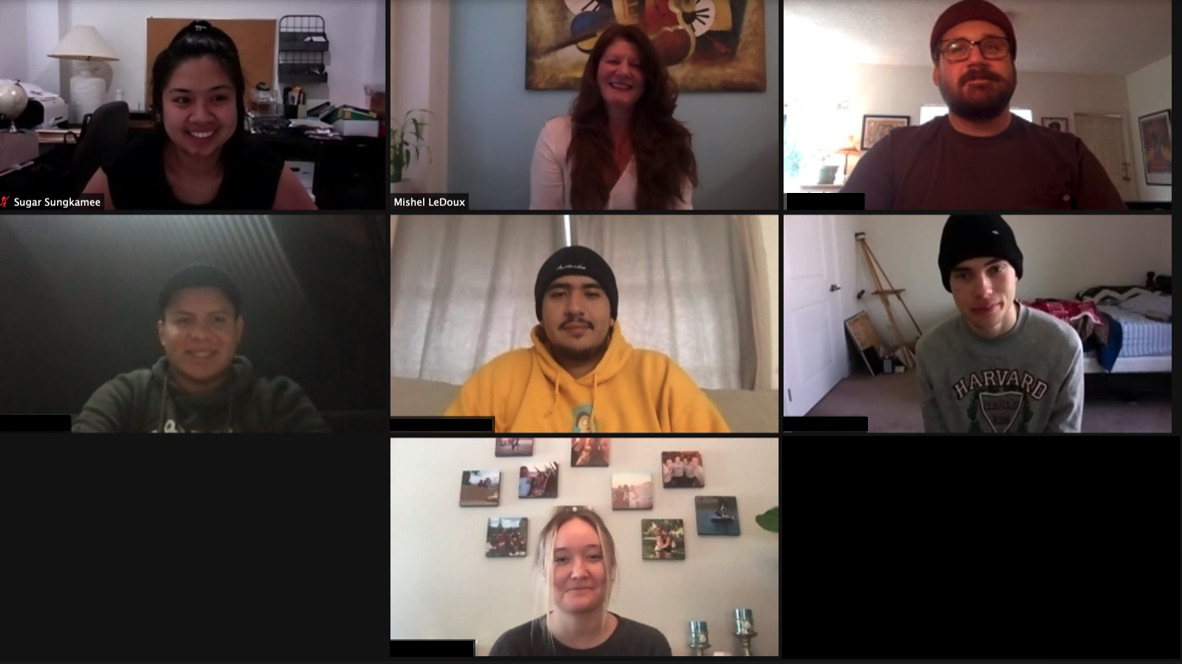
Jitlada Chef Sugar Sungkamee on Restaurant Management
Sugar shares how she's using her culinary management education from ICE, even after restaurant experience and a MBA.
Jitlada is one of those quintessential Los Angeles restaurants — a part of the city’s rich immigrant identity, beloved by many (especially the late LA Times critic, Jonathan Gold) and located in an unassuming spot. Like many restaurants spread across Los Angeles’ strip malls, Jitlada is also family-run.
Helmed by Jazz Singsanong and her niece, Sugar, the restaurant was founded by Sugar’s father Suthiporn “Tui” Sungkamee, who passed away in 2017. Sugar strives to carry on the family’s restaurant legacy, also owns Spicy Sugar in Long Beach, and recently completed her diploma in Restaurant & Culinary Management at ICE. Here's her story from dad’s kitchen helper to owner-operator.

How did Jitlada come about?
My dad owned restaurants all his life and also in Thailand. He liked to do things his way. When doing things at other restaurants they would say that it was “too spicy” and the flavors “too foreign” for American palates. He was used to being the boss.
Then, the old owners of Jitlada knew my dad and they wanted to sell it. They offered to lease it, my dad took it over, and I helped him open it. I was 15 at the time. I had been helping him ever since, all through high school.

What did you learn from your father?
I never went to formal cooking school, but I learned all my cooking from my dad. Ever since I was a baby, he wanted me to be a little Thai Martha Stewart. We spent a lot of time in the kitchen together. He taught the recipes to me at night when everyone [on the kitchen staff] was gone.
My dad also taught me to pick out fresh seafood and produce from the market in downtown LA. There are a few markets we go to in Monterrey Park. I just picked up some live crabs today!
What led you to enroll in the Restaurant & Culinary Management program at ICE after earning your MBA?
I went to ICE because our restaurant is family-run — uncles, cousins, aunties. I wanted to go to ICE to learn a system. What I learned in business school is different than how to run a small business and especially a small restaurant business.
What are the most important takeaways from your ICE education?
Reading financials. A lot of mom-and-pop small businesses don’t read that. They have a bookkeeper and enough to buy tomorrow’s groceries, they don’t understand budgeting. And marketing: In business school, they teach you how to work in a large corporation, which is very different. We learned social media, PR and how to market your restaurant business.
Before COVID-19, we never had delivery. So now we have Grubhub, DoorDash, UberEats. From the class, I learned to work on our website and to make our website more interesting, what people look for and how to make our menu available. We were stuck in the ‘90s before. We’re slowly getting there and now we’re also selling gift cards, t-shirts and bottled sauce.
What did you like most about the management program at ICE?
I loved my instructor, Mishel LeDoux. She really inspired me to work on my business every day. She also inspired me to give better customer service – in general, understanding what hospitality is and what that means and really seeing what the customer needs. Being more observant and knowing what they like and making adjustments to your business. To cater to them, to make them feel special when they come in — all the little details.
Remembering the details about a guest goes a long way.

What impact do you think this education will have on you and your business in the long-run?
Well, first and foremost, it does make me a more confident operator. I feel like I got formal training, specific to what I do. I was already working in the restaurant business and have experience in it. I feel like I got more out of it because I applied a real-world perspective.
Second, giving me new ideas. Every class I would think, Oh crap, oh my God, I haven’t done that yet! Mishel taught me inventory — we don’t do inventory. I don’t know how much beef we have in there! I never thought I could get that done by the end of the month. Everything I learned was added to my list of things to do and things I can eventually get to in order to better my business.
Also with the POS, all the details we need to look at sales per person, incentives to give my employees and how to deal with that. If I never went to ICE there would be no one to tell me these details.
What is next for Jitlada?
We are working on reopening after COVID-19 with dine-in and a tasting menu for Jitlada, inspired by Mishel. We want to do new and exciting dishes. We want to meet the customers’ needs. There’s still a lot we have to do. I want to make it more of what people expect it to be. There’s a lot of people that love it and a lot that don’t understand it. I’m working on making Jitlada better and more available.
Study to operate a restaurant in ICE's management program.


Add new comment